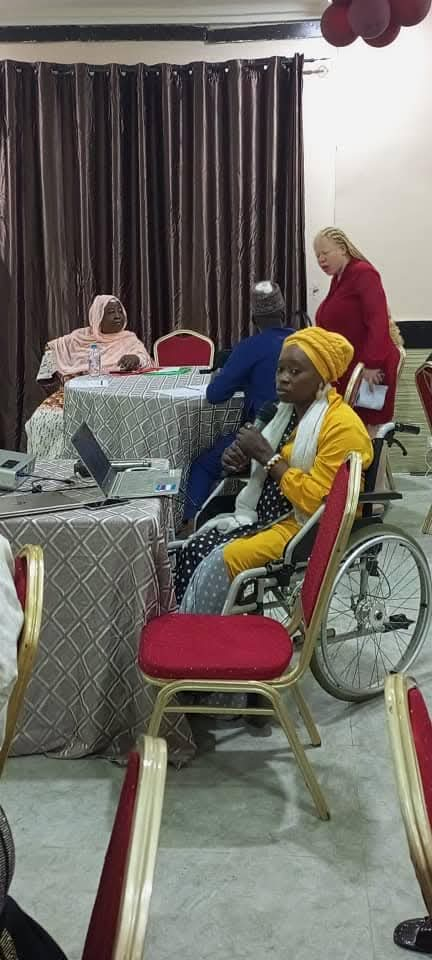In a concerted effort to tackle pressing health challenges within communities, the Sustainable Family Healthcare Foundation (SFHF) recently hosted a three-day workshop at the Brookville Hotel and Suites, Lokongoma, from December 10th to 13th, 2024. The workshop brought together stakeholders from various organizations, including the African Women With Disabilities Initiative (AWWDI), to develop robust advocacy strategies and Social and Behavioral Change (SBC) materials focused on critical health issues.
With the dual objectives of equipping participants with SMART advocacy skills and creating advocacy materials on Reproductive, Newborn, Maternal, Child, and Adolescent Health Plus Nutrition (RNMCAH+N) and Gender-Based Violence (GBV), the workshop set the stage for impactful collaborations.
A Platform for Inclusive Advocacy
The workshop kicked off with a warm welcome from Mrs. Peters, the Executive Director of SFHF. In her opening remarks, she emphasized the importance of the initiative, highlighting its role in designing inclusive advocacy tools to address key health challenges.
“The goal of this workshop is to develop advocacy and SBC materials that are not only impactful but inclusive, ensuring that no one is left behind in our campaigns for better health,” she said.
Mrs. Peters, whose organization has been at the forefront of fistula campaigns, shared inspiring success stories from her work while shedding light on the challenges faced by SFHF in its mission to improve community health. She expressed her optimism about the workshop’s potential to generate meaningful solutions through collaboration and innovation.
Focus Areas for Advocacy
Over the three days, participants worked diligently to create precise and actionable advocacy and SBC materials on five critical thematic areas:
- Safe Motherhood
- Fistula
- Nutrition
- Family Planning
- Mental Health
These focus areas were carefully selected to address prevalent health concerns affecting families and communities across the region. Participants engaged in brainstorming sessions, group activities, and expert-led discussions to ensure that the materials developed were evidence-based, inclusive, and adaptable to diverse contexts.
AWWDI’s Role in Ensuring Inclusion
The African Women With Disabilities Initiative (AWWDI) played a pivotal role in ensuring that the advocacy and SBC materials designed during the workshop prioritized inclusivity. As champions of disability rights, AWWDI advocated for the incorporation of disability-inclusive language, imagery, and strategies into all materials.
“Health advocacy must reflect the realities of all individuals, including women and girls with disabilities,” an AWWDI representative stated. “By making inclusion a priority, we are breaking barriers and ensuring equal access to health information and services.”
Through their active participation, AWWDI ensured that the voices of persons with disabilities were not only heard but integrated into the narratives and solutions proposed during the workshop.
Success Stories and Future Prospects
As the workshop drew to a close, participants showcased the advocacy and SBC materials they had developed, which were praised for their creativity, precision, and potential impact. From visual aids promoting safe motherhood to campaign materials addressing mental health stigma, the outputs reflected a commitment to addressing health challenges comprehensively.
Mrs. Peters expressed her gratitude to all participants for their dedication and contributions. “We have achieved something remarkable here. These materials are not just tools; they are the foundation for transformative campaigns that will touch lives and improve health outcomes,” she said.
She also pledged to provide feedback to participants as the materials are deployed in advocacy campaigns.
A Step Toward Health Equity
The SFHF workshop marked a significant milestone in the journey toward health equity and inclusion. By bringing together diverse stakeholders, the event underscored the importance of collaboration in tackling complex health issues.
For AWWDI, the workshop was an opportunity to further its mission of ensuring that women with disabilities are included in all aspects of advocacy and policy development.
As the advocacy and SBC materials are rolled out in the coming months, stakeholders remain hopeful that the campaigns will not only raise awareness but also inspire action to improve health outcomes across communities.
With initiatives like this, the future of inclusive health advocacy in Nigeria looks brighter than ever.


